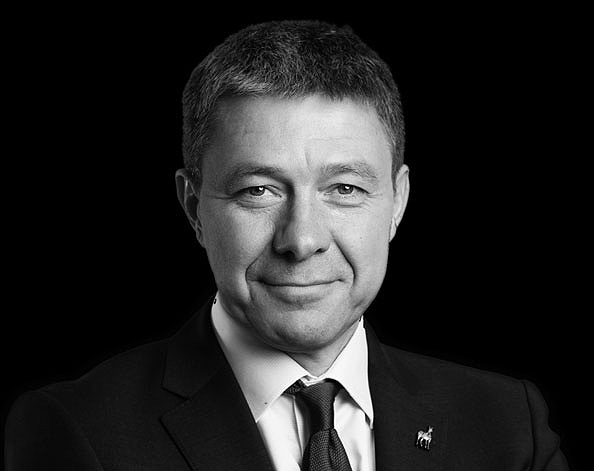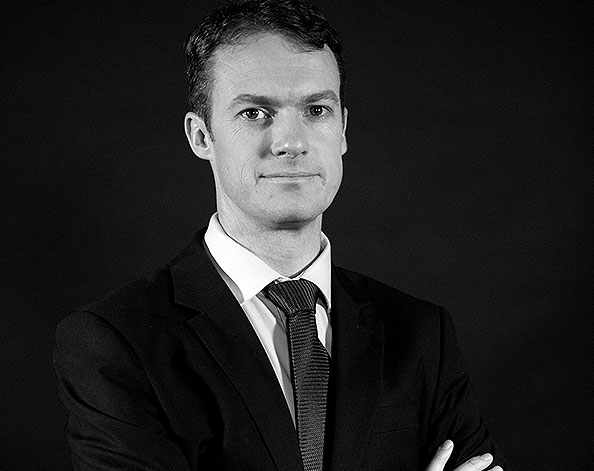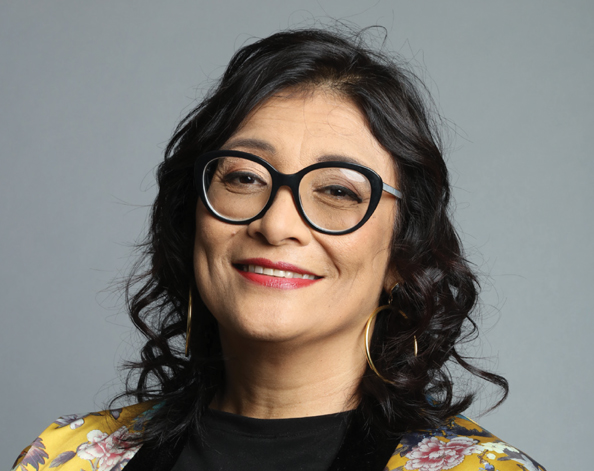There’s no doubt that Covid-19 has created a new source of uncertainty in what was already a fractured world. Underlying issues have come to the fore, the consequences of which will play out over the next few years.
While some of these will be challenging for investors, there will be significant opportunities created too, as new trends and balances of global power play out.
Covid-19, South Africa’s unique growth challenges and China’s growing importance on the global scene were some of the topics covered in a recent Market View panel discussion.
On the panel were Karima Brown, a leading political analyst; John Haynes, head of research at Investec Wealth & Investment UK and Chris Holdsworth, chief investment strategist at Investec Wealth & Investment. The conversation was moderated by financial markets broadcaster Nozipho Tshabalala.
Getting on top of the pandemic
Covid-19 remains the focus of attention for now, as countries look to roll back measures introduced to control its spread, back in March, in order to get their economies growing again. While second waves are likely, less likely is a return to the wholesale restrictions from earlier in the pandemic, says Haynes.
“The fact that we've come through is a great triumph of the system as we currently are living in it. We're past the point of systemic risk. I can't see anything that's going to be done by this virus that will put us back into that March period of fear,” says Haynes.
“To me there’s an increasing likelihood that we'll see a slow rolling back of restrictions, and that will liberate the economy and enable us to focus on the future.”
There’s always a chance of a “silver bullet” cure for the disease, says Haynes. However, the base case is that the virus will be with us for some time.
“I don't think there's a likelihood of a cure or a 100% effective vaccine but there will be more treatments and there will be ways of making sure that the people are less mortally affected than before. I think over time that it will become less of a challenge to us, as we become more relaxed with living with Covid-19 – because it's likely to be here for a number of years.”
Holdsworth says South Africa is some way off the peak – which now looks to be coming in late July or August. But South Africa is in a position to learn from other countries that have already peaked, he adds.
WATCH MACRO MONDAY: Chris Holdsworth's weekly macro economic overview

To me there’s an increasing likelihood that we'll see a slow rolling back of restrictions, and that will liberate the economy and enable us to focus on the future.
President Ramaphosa shows his mettle
When it comes to President Cyril Ramaphosa’s position, Brown says he has shown his agility and nimbleness, with his key strengths coming to the fore in the current crisis.
As head of the African Union, he has also been at the fore of the continent’s tackling of the crisis. Both of these have put him in a stronger position, compared with the leaders of the opposition parties.
“His standing in the governing party and his standing on the continent has in my mind given him a much surer footing than he started off with in 2017,” says Brown.
Trust us to manage your wealth today
South Africa’s constraints
Holdsworth says hard work in terms of controlling spending and fiscal discipline will be needed to control the debt-to-GDP trajectory. Interest payments are currently 20% of government expenditure, at a time when bond yields are high relative to the rest of the world.
“We can’t tax our way out of this,” he argues. “We need to run a primary surplus [spending before interest costs must be lower than revenues], which requires discipline.”
“The good news is that if the government does control spending, the budget position will improve and the risk premium on government bonds will come down. So, the problem can resolve itself quite rapidly, but it's hugely contingent on actual action coming through. Words no longer suffice.”
Eskom is another major constraint. Not only does government have to deal with the state-owned entity’s debt burden, but its production issues need to be addressed.
“The lockdown did provide an opportunity to do some maintenance, but further deep maintenance is required. So loadshedding could be an issue in the coming months,” says Holdsworth.
“During the lockdown, Eskom was able to take advantage of reduced demand for electricity to up its planned maintenance and as a result there's been some improvement. But that's insufficient in order to do the deep root and stock maintenance on these plants that is required,” adds Holdsworth.
“So as we embark on this recovery, the prospect of load shedding will return and we think that's going to hang over our heads until August.”
Brown says she has been impressed with CEO Andre de Ruyter’s leadership at Eskom. “It's a fantastic example of private sector leadership being harnessed for the public good and we need more of that in South Africa,” she says.

[South Africa's problematic budget position] can resolve itself quite rapidly, but it's hugely contingent on actual action coming through. Words no longer suffice.
What do the coming years hold for the world and South Africa?
Haynes says the confidence factor will be key in how the recovery unfolds, especially the extent to which businesses and consumers go back to their previous spending patterns. Equally important will be the recovery of supply chains and how quickly these get back to where they were before the crisis.
“When people start to see the world coming through this there'll be a catch-up of those areas that have been left behind. Individual sectors, of course technology, environment will be watched, but quality is the main thing. If you're going to invest in one thing in this world at the current time, anywhere in the world, invest in the highest quality companies you can, in other words strong balance sheets and the ability to withstand the challenges,” he says.
READ MORE: What investment opportunities are there during and after the Covid-19 crisis
A new vision of 2020
A snapshot of the year that was and why it has helped us rediscover our humanity.
Holdsworth says that if there is a global recovery, South Africa will do well, along with other emerging markets. “But we won’t participate fully in the upturn if we don’t deal with our obstacles – such as our high budget deficit and Eskom’s supply constraints.”
Despite the above, Holdsworth is positive about South African bonds, which have a high margin of safety priced in. There is fiscal risk, but it lies with the so-called ‘SA Inc’ sector – companies which are closely linked to the performance of the domestic economy.
“These companies would be affected by higher taxes or if the government forces pension funds to invest a certain percentage of their funds in government bonds (prescribed assets).”
Looking at other big trends, Haynes says Covid-19 has “broken the mental austerity lock”, with governments now more willing to harness fiscal policy to achieve objectives.
Haynes sees an increasingly multipolar world in the coming years, with China assuming an increasingly more powerful role.
“I think as you get out the other side of this crisis, you're going to see a confident China which might be hard to swallow for the West in its engagements. But I think what it does is to remove it as an investment issue as a source of instability,” says Haynes.

[Eskom CEO Andre de Ruyter’s leadership] is a fantastic example of private sector leadership being harnessed for the public good and we need more of that in South Africa.
Brown says China’s increasingly influential role in the world could work in South Africa’s favour. “The South African economy on its own isn't really a big factor in relation to China but when you start talking about the continent then suddenly you are scaling up and I think that that gives us the kind of advantage that is very useful,” Brown argues.
“It gives Ramaphosa and his uncontroversial engagement style the consensus to build stature and open the possibility of addressing things like the debt crisis in Africa, which of course China is a massive participant in.”
Locally, while opposition parties have taken a back seat while dealing with their own internal issues, the governing party could be under pressure in the run-up to the next local government elections.
“Local government is where the tyre hits the tar when it comes to carrying out policy, and it’s where the government has been weakest in its delivery. A lot of what Ramaphosa needs to get right is at this level. This will be a true test for him,” says Brown.
About the author

Patrick Lawlor
Editor
Patrick writes and edits content for Investec Wealth & Investment, and Corporate and Institutional Banking, including editing the Daily View, Monthly View, and One Magazine - an online publication for Investec's Wealth clients. Patrick was a financial journalist for many years for publications such as Financial Mail, Finweek, and Business Report. He holds a BA and a PDM (Bus.Admin.) both from Wits University.
Please refer to the W&I Webinar Disclaimer and Data Protection Notice for the terms and conditions governing W&I webinars.
Get Focus insights straight to your inbox




